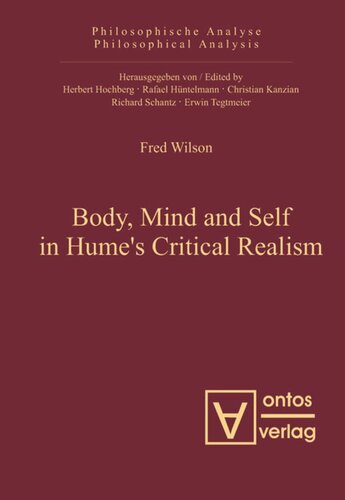

Most ebook files are in PDF format, so you can easily read them using various software such as Foxit Reader or directly on the Google Chrome browser.
Some ebook files are released by publishers in other formats such as .awz, .mobi, .epub, .fb2, etc. You may need to install specific software to read these formats on mobile/PC, such as Calibre.
Please read the tutorial at this link: https://ebookbell.com/faq
We offer FREE conversion to the popular formats you request; however, this may take some time. Therefore, right after payment, please email us, and we will try to provide the service as quickly as possible.
For some exceptional file formats or broken links (if any), please refrain from opening any disputes. Instead, email us first, and we will try to assist within a maximum of 6 hours.
EbookBell Team

5.0
90 reviewsThis essay proposes that Hume’s non-substantialist bundle account of minds is basically correct. The concept of a person is not a metaphysical notion but a forensic one, that of a being who enters into the moral and normative relations of civil society. A person is a bundle but it is also a structured bundle. Hume’s metaphysics of relations is argued must be replaced by a more adequate one such as that of Russell, but beyond that Hume’s account is essentially correct. In particular it is argued that it is one’s character that constitutes one’s identity; and that sympathy and the passions of pride and humility are central in forming and maintaining one’s character and one’s identity as a person. But also central is one’s body: a person is an embodied consciousness: the notion that one’s body is essential to one’s identity is defended at length. Various concepts of mind and consciousness are examined - for example, neutral monism and intentionality - and also the concept of privacy and our inferences to other minds.